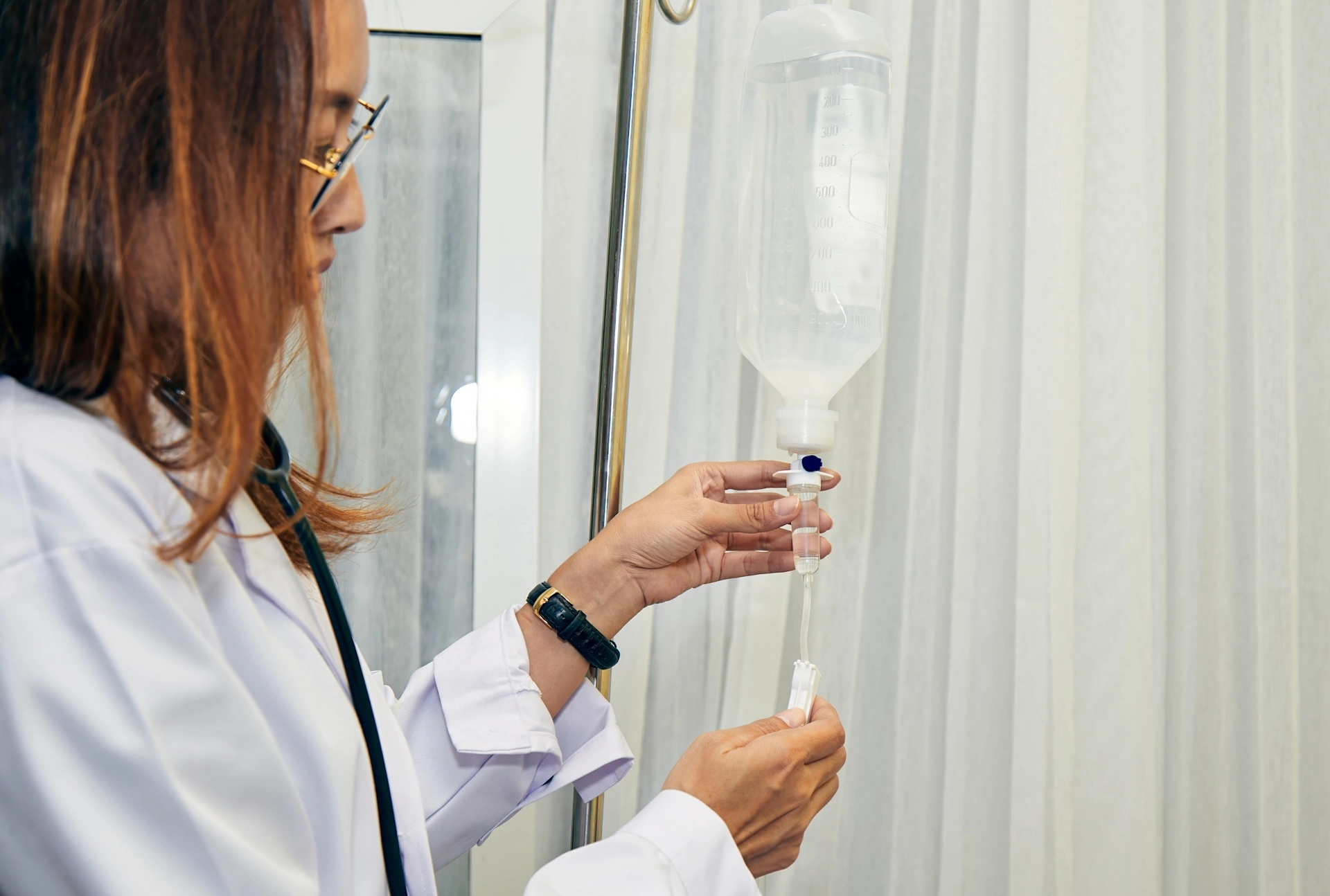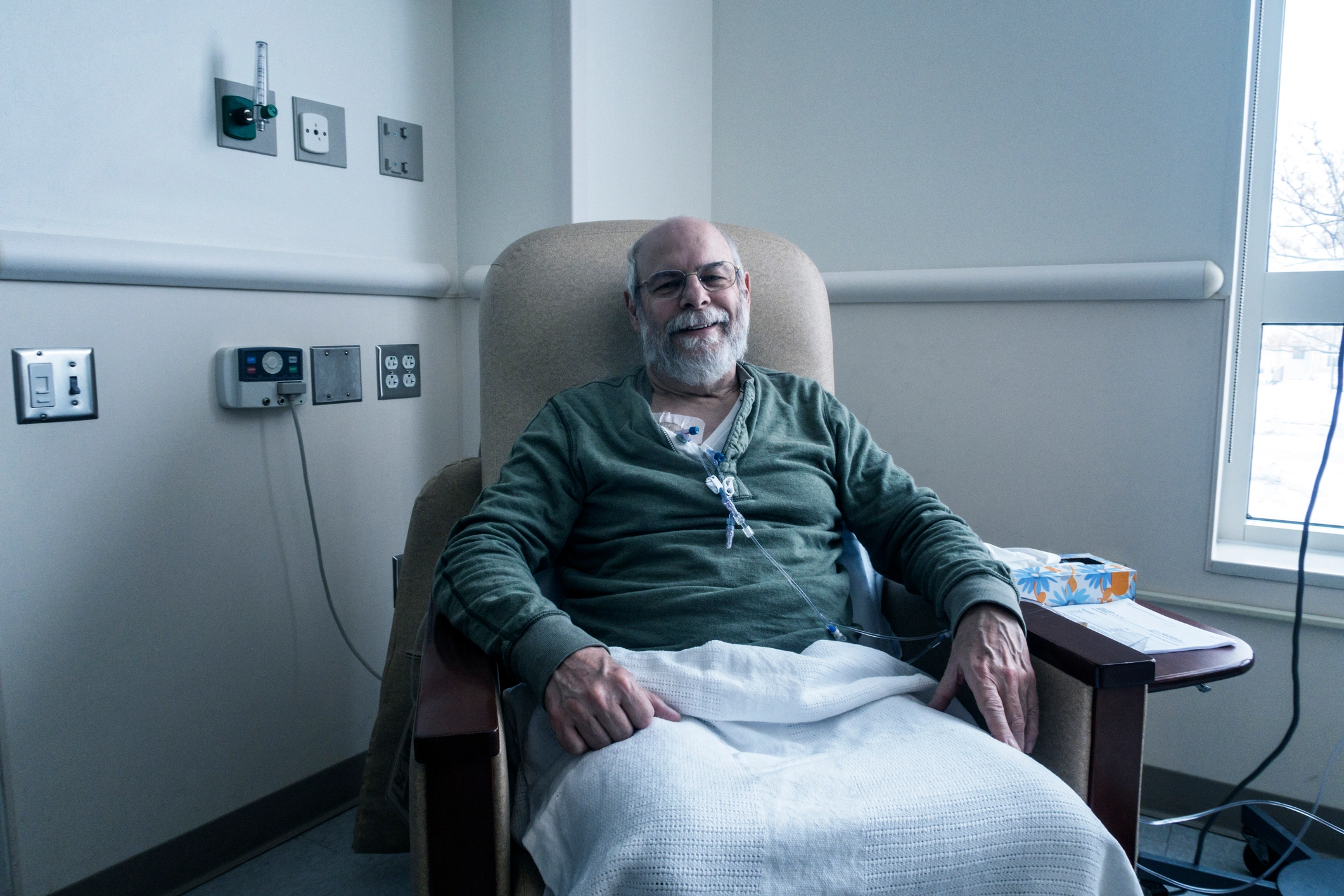Large study led by Kaiser Permanente finds investigational test is effective at finding tumors but not pre-cancerous polyps
An investigational colorectal cancer screening blood test was effective at identifying tumors, but less effective at identifying people with precancerous polyps, a large new study found.

The research, published in JAMA, included 27,010 adults ages 45 to 85 at average risk of colon cancer. Participants were enrolled at 201 centers mostly throughout the U.S. — including Kaiser Permanente Northern California (KPNC) — between May 2020 and April 2022. Each participant had a screening colonoscopy within 120 days of providing a blood sample for the test. The study looked at the blood test’s ability to identify the patients that had a cancer or polyp found on the colonoscopy.
“Colorectal cancer screening is an effective way to reduce both colorectal cancer incidence and deaths,” said senior author Theodore R. Levin, MD, a research scientist at the Kaiser Permanente Division of Research and a gastroenterologist at The Permanente Medical Group. “The best test for colorectal cancer screening is the test that someone will do. Right now, that is a colonoscopy or a stool test. An effective blood test could potentially be another option.”
Previous studies have shown that as cancers grow, they shed their DNA into the bloodstream. The investigational blood test, which has not yet been approved by the U.S. Food and Drug Administration, was designed to identify DNA patterns circulating in the blood that are associated with colorectal cancer and precancerous polyps.
The study found that the blood test correctly identified 79.2% — 57 of 72 study participants — whose screening colonoscopy found a tumor. Overall, it was more effective at detecting larger tumors, identifying 16 of 28 people with stage I cancer, all 15 people with stage II cancer, 14 of 17 people with stage III cancer, and all 11 people with stage IV cancer.
The best test for colorectal cancer screening is the test that someone will do. Right now, that is a colonoscopy or a stool test. An effective blood test could potentially be another option.
— Theodore R. Levin, MD
The blood test also correctly identified 91.5% of the 24,371 study participants who did not have colorectal cancer or an advanced precancerous colorectal lesion. However, it only correctly identified 12.5% — 321 of the 2,567 study participants — who had one of these polyps identified and removed during their colonoscopy.
“A test that can identify precancerous polyps is necessary because when these polyps are removed it prevents cancer from developing,” said Levin. “The investigational blood test is not as effective as a colonoscopy or a stool test at identifying these polyps.”
Colorectal cancer is the second most common cause of cancer deaths in the U.S. Colorectal cancer screening tests can find cancers as well as prevent them from developing through the identification and removal of precancerous polyps. The U.S. Preventive Services Task Force recommends that colorectal screening begin at age 45.
Since 2006, KPNC has had a comprehensive colorectal cancer screening program. A recent study showed that among KPNC members the program has reduced cancer incidence by a third, halved deaths, and eliminated racial differences in outcomes. The initiative reminds people it is time for their colorectal cancer screening test and sends them a fecal immunochemical testing (FIT) kit for at-home testing. Members can choose to have a colonoscopy rather than use the FIT test.
Nationwide, it is estimated that only about 59% of people are up to date with colorectal cancer screening. Barriers to screening include access to care, the invasive nature of a colonoscopy, the discomfort of the required preparation, and the need to miss work for the procedure. The FIT test avoids these obstacles but does require a person to be comfortable using a stool test.
A blood test could potentially create another option for colorectal cancer screening. The researchers say more studies are necessary to increase the test’s ability to detect precancerous polyps as well as determine if it reduces colorectal cancer incidence and death.
The study was funded by Freenome Holdings, Inc.
Co-authors include Aasma Shaukat, MD, MPH, and Peter S. Liang, MD, MPH, of New York University; Carol A Burke, MD, of the Cleveland Clinic; Andrew T. Chan, MD, MPH, of Massachusetts General Hospital; William M. Grady, MD, of the Fred Hutchinson Cancer Center; Samir Gupta, MD, MSCS, of the University of California, San Diego; Bryson W. Katona, MD, PhD, of the University of Pennsylvania; Uri Ladabaum, MD, MS, of Stanford University; Julia J. Liu, MD, of the Morehouse School of Medicine; Douglas J. Robertson, MD, MPH, of Dartmouth University, Robert E. Schoen, MD, MPH, of the University of Pittsburgh; Girish Putcha, MD, PhD, Zhen Meng, PhD, Andrew Piscitello, MAT, Chung-Kai Sun, MS, Chuanbo Xu, PhD, C. Jimmy Lin, MD, PhD, MHS, Lilian C. Lee, PhD, and Lance Baldo, MD, of Freenome Holdings, Inc., for the PREEMPT CRC Investigators.
Some co-authors have received personal or consulting fees from Freenome Holdings, Inc.
###
About the Kaiser Permanente Division of Research
The Kaiser Permanente Division of Research conducts, publishes, and disseminates epidemiologic and health services research to improve the health and medical care of Kaiser Permanente members and society at large. KPDOR seeks to understand the determinants of illness and well-being and to improve the quality and cost-effectiveness of health care. Currently, DOR’s 720-plus staff, including 73 research and staff scientists, are working on nearly 630 epidemiological and health services research projects. For more information, visit divisionofresearch.kp.org or follow us @KPDOR.





Comments (0)